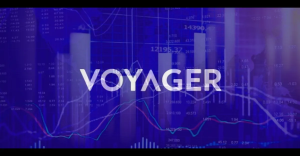Join Our Telegram channel to stay up to date on breaking news coverage
During a court hearing on Monday, the judge presiding over the bankruptcy proceedings involving cryptocurrency broker Voyager Digital had harsh words for an objection from the Securities and Exchange Commission.
Judge Michael Wiles stated at the hearing that without certain protections for “persons” involved in Voyager’s restructuring plan, which involves selling its distressed assets to Binance US, “a sword hanging over the heads of everybody who’s going to conduct this transaction” would exist.
Voyager has an agreement to sell its troubled assets to Binance US, who will subsequently take care of paying back the clients. Wiles had planned to make a decision regarding the scheme last week. Instead, he has given the SEC till tomorrow morning to develop a stronger defense against Voyager’s restructuring strategy, according to a Bloomberg story.
While the SEC itself hasn’t taken a formal stance on whether Voyager’s VGX token is a security, staff members at the agency feel it may be and want to keep the right to hold the company responsible, according to the SEC’s objection. Additionally, the SEC claimed that Binance US was an unregistered securities exchange since the transactions to repatriate assets to US clients “may violate” its regulations against the sale of unregistered securities.
Restructuring plans frequently incorporate some legal safeguards for firm executives and consultants during bankruptcy proceedings. Yet the SEC has expressed concern that those protections must be very clearly stated in a disclosure statement.
The SEC objected, claiming that
Voyager wanted to grant everyone connected in the agreement with Binance US total protection from any enforcement proceedings for past or future violations of the law’relating’ the Restructuring Transactions.
The SEC is only the most recent federal agency to examine Voyager‘s Chapter 11 restructuring strategy. To seek legal defense against potential civil or criminal fraud accusations is “blatantly illegal,” according to U.S. Attorney for the Southern District of New York Damian Williams. Williams’ opposition was backed by a letter from the New Jersey state securities regulator.
Voyager has been criticized by Texas securities and banking regulators for not being more thorough when informing unsecured creditors that their compensation could decrease from an estimated 51% to 24% of the value of their assets if the business loses its legal battle with Alameda Research.
In order to recoup $446 million in debts it had repaid to Voyager Digital, Alameda filed a lawsuit against Voyager in January. According to the claim, Voyager and other cryptocurrency lenders “financed Alameda and fueled [its] alleged misbehavior, either knowingly or carelessly.” The money is now recoverable, according to Alameda’s attorneys, and should be used to pay off Alameda’s creditors rather than Voyager’s.
Texas regulators have also drawn attention to Binance US’s Terms of Use, pointing out that they ask customers to acknowledge that
Binance.us relies upon Binance.com and other “Related Parties” to provide services to Binance US,
Texas Attorney General Abigail Ryan wrote in a court filing in February, arguing that not all countries where customer data may be shared maintain the same financial data protections as the U.S.
However, there have been some encouraging signs of peace. The Federal Trade Commission labeled the same language a “disguised discharge” to shield Voyager from being held liable for “deceptive and unfair marketing,” which is a similar issue to the one made by the SEC two weeks ago.
In a letter sent to the court on Friday, FTC attorney Katherine Johnson stated that since making its objection, the FTC had discussed “specific carve-out wording designed to address the FTC’s objection” with Voyager’s legal counsel.
If the agreement between Voyager Digital and Binance US to sell its distressed assets cannot be fulfilled, the bankrupt cryptocurrency broker may have to launch a third round of bidding.
Voyager stated in September that its troubled assets would be purchased by Sam Bankman-trading Fried’s department, Alameda Research. Voyager had to abandon that strategy when FTX itself failed in November, taking Alameda down with it.
Voyager revealed in December that it had reached a tentative agreement with Binance US to sell its assets after reopening the bidding process. If the customers are located in one of the states where Binance US is authorized to conduct business, the company even went as far as to create Binance US accounts for them. Hawaii, New York, Texas, and Vermont residents might have to wait up to six months longer than the others.
Related
- Following its bankruptcy, Voyager Digital will sell its last assets this month
- Binance Review – Fees, Features, Safety, Pros & Cons
- Upcoming Binance listings
Join Our Telegram channel to stay up to date on breaking news coverage


